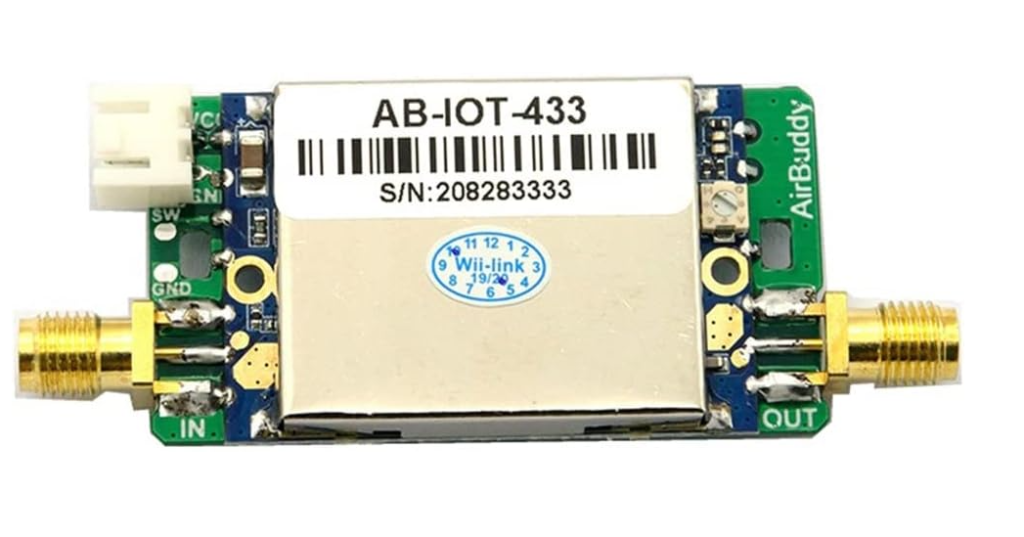In a previous article, I discussed the APRS LoRa 433 MHz project, and how these little units provided an impressive range on +20 dBm or 100mW.
The range in the car can or course be optimised by a resonant antenna and the addition of a PA amplifier. The PA suggest its capable of a 13dB gain, so from 100 mW to around 2W, but this may be a little optimistic.
Firstly let’s take a look at the amplifier in question, these are marked up as IOT – 433

The amplifiers have TX sensing, so they can switch between RX and TX as needed. The +ve is 5V, so you can feed this from a USB connector with an adaptor. The instructions suggest you can feed with anything from 3.7v to 6v.
Maximum transmit power
31.5dBm (1.4w) at 3.7V supply voltage;
33.5dBm (2.3w) at 5.0V supply voltage;
34.5dBm (2.8w) at 6.0V supply voltage.
I have no way to measure the output power, but I have completed some RX measurements with other local stations. I could see around 8dB to 10dB improvement to my signal, then the unit was connected at home.

If you are powering the LoRa unit from USB, then you should be able to configure the PA via USB as well, the maximum current draw should be under 1A. The unit is transmitting infrequently, so you should not generate very much heat and the supplied heat sink should be fine.
You will notice a POT that can be adjusted on the right of the board, this is for gain and should be fully clockwise when delivered. You shouldn’t need to change this unless you want to reduce the power.
You may also find something like this USB open wire connector helpful with the installation

You will also need a short SMA patch lead, and these can be sourced online

Once you have setup your igate, be sure to track its progress on the https://lora.ham-radio-op.net/
Remember you can order the 433 MHz LoRa boards online, but you will need to be a licensed operator to transmit on 439 MHz and use the PA described in this article.

